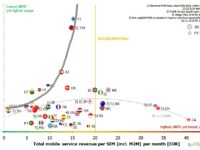CBC President Catherine Tait recently sparked a firestorm with comments to an industry conference that likened Netflix, the popular online video service, to the British Raj in India and French in Africa, warning about “imperialism and the damage that it can do to local communities.” The comments were rightly criticized as shockingly inappropriate, as if any video service can be reasonably compared to the subjugation of millions.
My Hill Times op-ed notes that some in the Canadian creator community rushed to defend Tait, however, viewing the comments as a strong assertion for Netflix regulation, the creation of a “level playing field”, and the need for all stakeholders to contribute to the broadcast system. Supporters of Netflix taxes and content requirements – who were joined in the Hill Times last week by Sheila Copps – present a vision of Canadian content at risk without regulatory intervention, leading to the loss of Canada’s “authorial voice” from film and television production.











